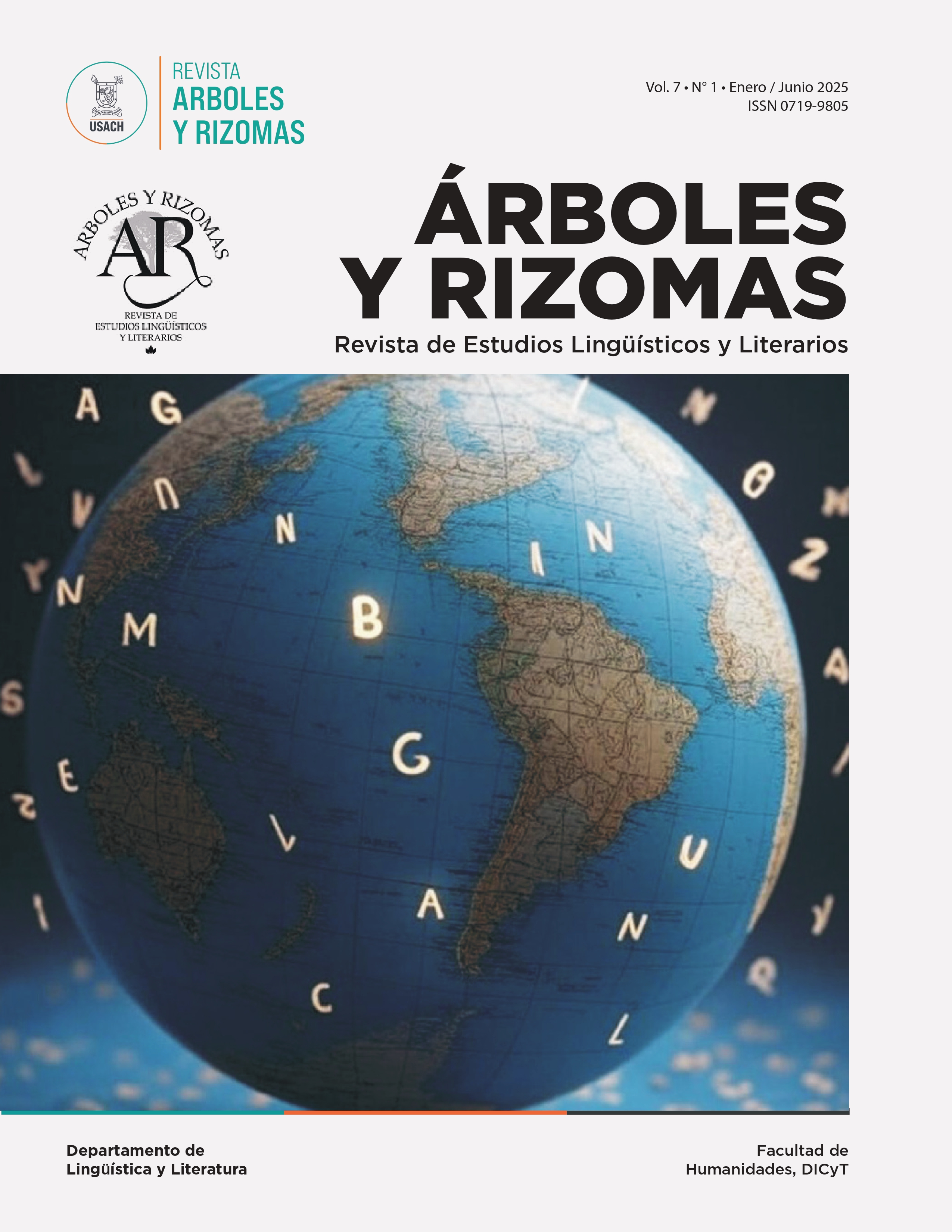Advantages and challenges of teaching English from an ELF perspective: what do pre-service teachers think?
DOI:
https://doi.org/10.35588/ayr.v7i1.7263Keywords:
English as a lingua franca, BNCC, English language teaching, pre-service teacher education, action researchAbstract
The growing impact of English as Lingua Franca (ELF) research on educational policies, as reflected in the National Common Curricular Base (BNCC) (Brasil, 2018), presents challenges for pre-service teachers who need to be prepared to meet the new demands of English language teaching. In this context, this article analyzes the understanding of pre-service teachers in the English Language and Literature program at a public university in Bahia/Brazil regarding the advantages and limitations of teaching English from an ELF perspective. This study, part of a doctoral research project, is methodologically grounded in action research and was conducted with fifteen participants throughout their Supervised Teaching Practicum I and II courses. Data generated through questionnaires and interviews were subjected to thematic analysis (Braun & Clarke, 2006). The theoretical foundation of this research is built upon ELF scholars such as Sifakis (2007, 2014), Sifakis e Bayyurt (2018), Gimenez et al. (2015), Cavalheiro (2015, 2016), Guerra (2020) and Siqueira (2017, 2020). The results highlight that, despite the potential obstacles and challenges identified, the pre-service teachers demonstrated a willingness to integrate the ELF perspective into their future teaching experiences.
Downloads
References
Alves, P. C. R. (2024). Inglês como Língua Franca na Formação Inicial de Professores: de implicações a implicações [Tese de Doutorado, Universidade Federal da Bahia, Instituto de Letras, Salvador, Bahia]. Repositório Institucional da UFBA.https://repositorio.ufba.br/bitstream/ri/40031/1/Polyanna%20Castro%20Rocha%20Alves_Tese_2024.pdf
Bayyurt, Y., & Dewey, M. (2020). Locating ELF in ELT. ELT Journal, 74(4), 369-376.
Brasil. (2018). Base Nacional Comum Curricular. MEC/Secretaria de Educação Básica.
Braun, V., & Clarke, V. (2006). Using thematic analysis in psychology. Qualitative Research in Psychology, 3(2), 77-101.
Cavalheiro, L. (2015). English as a lingua franca: bridging the gap between theory and practice in English language teaching [Tese de Doutorado, Universidade de Lisboa, Portugal]. Repositório da Universidade de Lisboa.https://repositorio.ulisboa.pt/jspui/bitstream/10451/18219/1/ulsd070694_td_Lili_Cavalheiro.pdf
Cavalheiro, L. (2016). Developing intercultural awareness and communication in Teacher Education Programs. In L. Lopriore, & E. Grazzi (Eds.), Intercultural communication: new perspectives from ELF (pp. 145-161). Roma TrE-Press.
Deniz, E. (2017). A case study on ELF-aware pre-service language teacher education model: theory into practice [Tese de Doutorado, Çukurova University, Turquia].
Franco, M. A. S. (2005). Pedagogia da pesquisa-ação. Educação e pesquisa, 31(3), 483-502.
Gimenez, T., El Kadri, M. S., Calvo, L. C. S., Siqueira, S., & Porfirio, L. (2015). Inglês como língua franca: desenvolvimentos recentes. RBLA, 15(3), 593-619.
Guerra, L. (2020). ELF-awareness and intercultural communicative competence in ELT policies in Portugal. Estudos Linguísticos e Literários, 65, 49-68.
Guerra, L., & Cavalheiro, L. (2019). When the textbook is not enough: how to shape an ELF classroom? In N. C. Sifakis, & N. Tsantila (Eds.), English as a lingua franca for EFL contexts (pp. 117-131). Multilingual Matters.
Holliday, A. (2005). The Struggle to Teach English as an International Language. Oxford University Press.
Kumaravadivelu, B. (1994). The post-method: (E)merging strategies for second/foreign language teaching. TESOL Quarterly, 28(1), 27-48.
Leffa, V. J. (2001). Aspectos políticos da formação do professor de línguas estrangeiras. In V. J. Leffa (Ed.). O professor de línguas estrangeiras: construindo a profissão (pp. 333-355). Educat.
Lopriore, L. (2018). ELF in ELT education: new perspectives in language awareness. In N. C. Sifakis (Ed.). JELF Colloquium ELF-awareness in ELT: bringing together theory and practice. Journal of English as a Lingua Franca, 7(1), 160-166.
Santana, J. S. (2021). As novas bases do ensino de língua inglesa para a educação básica brasileira: entre críticas e crenças [Dissertação de Mestrado, Universidade Federal da Bahia, Instituto de Letras, Salvador]. Repositório Institucional da UFBA.https://repositorio.ufba.br/bitstream/ri/35995/1/dissertacao_juliana_silva_santana.pdf
Seidlhofer, B. (2011). Understanding English as a Lingua Franca. Oxford University Press.
Sifakis, N. C. (2007). The education of teachers of English as a lingua franca: a transformative perspective. International journal of Applied Linguistics, 17(3), 355-375.
Sifakis, N. C. (2014). ELF awareness as an opportunity for change: a transformative perspective for ESOL teacher education. Journal of English as a Lingua Franca, 3, 317-335.
Sifakis, N. C., & Bayyurt, Y. (2018). ELF-aware teacher education and development. In J. Jenkins, W. Baker, & M. Dewey (Eds.), The Routledge Handbook of English as a Lingua Franca (pp. 456-467). Routledge.
Sifakis, N. C., Lopriore, L., Dewey, M., Bayyurt, Y., Vettorel, P., Cavalheiro, L., Siqueira, S. P., & Kordia, S. (2018). ELF-awareness in ELT: Bringing together theory and practice. Journal of English as a Lingua Franca, 7(1), 179–184.
Siqueira, S. (2017). Intercultural language educators for an intercultural world: action upon reflection. Intercultural Education, 28(4), 390-407.
Siqueira, S. (2018). ELT and the commercial EFL textbook: a possible dialogue? In N. C. Sifakis (Ed.), JELF Colloquium ELF-awareness in ELT: bringing together theory and practice. Journal of English as a Lingua Franca, 7(1), 189-197.
Siqueira, S. (2020). ELF with EFL: what is still needed for this integration to happen? ELT Journal, 74(4), 377-386.
Downloads
Submitted
2025-03-31Published
Issue
Section
License
Copyright (c) 2025 Polyanna Castro Rocha Alves

This work is licensed under a Creative Commons Attribution 4.0 International License.






